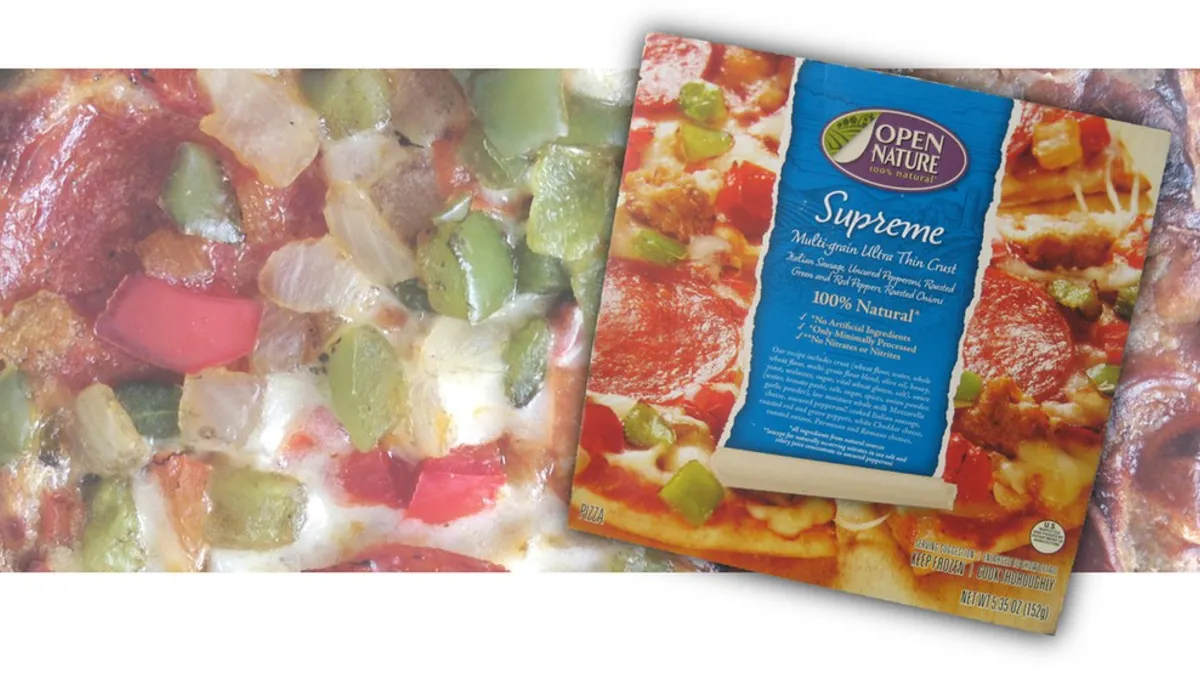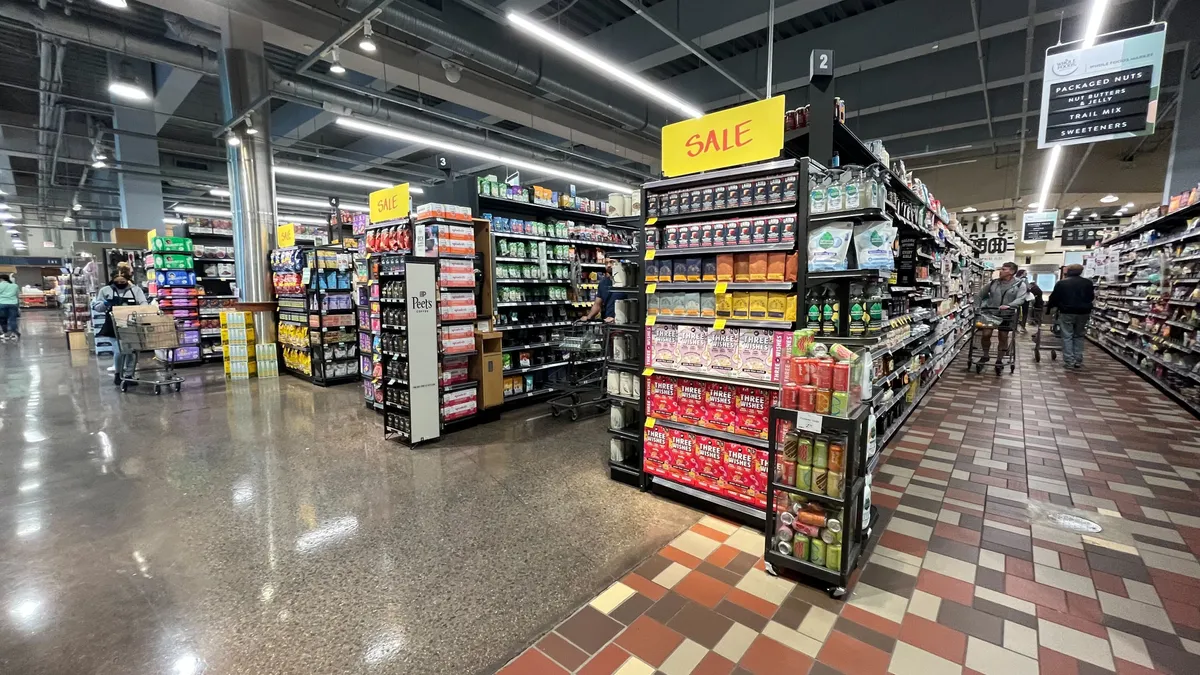Dive Brief:
- Private label products have yet to really resonate with online grocery shoppers, according to CNBC. Last year, the number of store trips that included a private label product grew by 2%, while online that number dropped 1.7%.
- Industry experts fully expect store brand sales to pick up online, given their growing popularity and quality. Currently, store brands account for 14% of sales, according to a UBS analyst interviewed by CNBC.
- Some grocers are already seeing high returns from promoting their store brands online. Peapod, the online grocer owned by Ahold Delhaize, sells at least one Nature’s Promise product in 65% of its orders. A Walmart spokeswoman said the company is seeing higher online conversion rates for its private label products, and many industry observers expect Amazon to aggressively push into online private label sales with its acquisition of Whole Foods.
Dive Insight:
As retailers continue to close the gap between their private label brands and national counterparts in terms of quality, price, marketing and availability, the potential for massive online sales grows. These days, companies like Lidl, Kroger, Trader Joe’s and Publix offer store brands that are on par with national brands.
Some are hoping to eclipse national brands. During a recent earnings call, Kroger CEO Rodney McMullen told analysts the company had benchmarked its private label products against national competitors, and often found their brands were the more desirable. Store brands currently make up 25.6% of Kroger’s sales and 28% of units sold.
“Our research showed that the most-loved brands sold in our stores are our [own] brands above even the national brands," said McMullen. “And in the blind taste tests, our brands outperformed competitive national brand and other private label products almost 100% of the time.”
With competition increasing, retailers like Kroger are using private label as a competitive advantage. The lower prices, higher margins and unique branding opportunities these brands offer provide a crucial point of distinction for grocers. The stakes are certainly high, as evidenced by the high profile legal spat unfolding between Lidl and Kroger.
Walmart, the country’s leading seller of national brands, is increasing its private label footprint, and coupled with its growing online shopping platform should see increasing returns. Numerous other chains have updated and expanded their private selections, including Aldi and Southeastern Grocers, whose tiered private label selection is one of the great hopes for a company struggling with sales.
Amazon remains the wild card in all of this. The company has dabbled in grocery private label to this point, mostly with specialty offerings like Mama Bear and Happy Belly. With Whole Foods in its arsenal, the e-commerce giant could offer the grocer's 365 brand through its site, improve Whole Foods’ e-commerce platform and also expand its own private label offerings. Many expect the company to drive sales of Whole Foods’ private label offerings online and in-store, while also improving prices.
Ultimately, the future of online private label sales depends on the relationships stores are able to build between these brands and their customers, and how well retailers are able to promote these offerings online. Although ecommerce represents an opportunity to greatly expand store brand sales, grocers need to remember that the demand for those products typically begins in the physical location.










